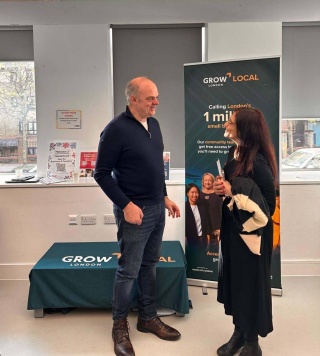A BEGINNERS GUIDE TO SEO LINK BUILDING

Link building has become a bit of a buzzword in the SEO community. We're all actively promoting creative marketing, content marketing, and other terms to emphasize quality over quantity. Google's algorithm changes have made us more wary of unnatural link building practices, but at our London SEO agency, we still believe links are a critical ranking factor. The focus now lies on acquiring high-quality links from authoritative sites to authoritative content.
So how do we build links for SEO purposes?
The best way, in Google’s Eyes, to build links is not to. What Google wants us to do is create great content that people want to link to.
Of course this puts us in a little bit of a quandary.
If we build great content how do we get links. If our site doesn’t already have links then no-one is seeing our content in the search engines anyway.
So the most established websites who already have tens of thousands of links remain on top and anyone trying to challenge the status quo has an insurmountable barrier – getting their content seen and linked to without buying links or in any other way paying for links. Paying for links is against Google’s terms and conditions but the reality is that most large companies are paying for links – whether this is press coverage or from other websites.
So how do we build links then?
Well we have two options;
- Break the rules and pay for links
- Follow the rules and aggressively market content
When you are doing outreach you will have a much greater response rate if you follow option one. However, option two makes you the drive to create better quality content. If you are to be successful with option 2 you need to have the absolutely best content you can imagine.
We regularly extol the virtues of exceptional content but if you want to use more effective SEO and marketing then it is essential.
For more on effective content creation see our post on How content marketing can launch your business website.
What we do with our content is crucial to how we build links. So we will use some examples for use with option 2.
1. Talk about other websites and companies
If you talk about other companies, websites or services then they are more likely to link to your article which features them. So, for example, you might create a round-up of the top industry sites for news or create an in-depth piece on a selection of products. You then contact the companies in question and tell them you have featured them in a post on your site. If you’re lucky they may link to you, or tweet about you or share your post on social media.
2. Talk directly to companies and ask them to contribute opinion or content
Interviews with company directors or industry leaders are a great way to get links. Companies and individuals like to show they are part of communities and experts in their respective fields. To use this technique we build up a list of industry leading people and contact them directly. To give an example you might send an email saying
“We are currently looking at how the SEO landscape has changed the most in the last year. We were wondering if you would care to contribute your own opinion as part of our piece”.
Of course this would need more but this type of outreach tends to get a very favourable response rate. At the same time people are very likely to tweet or link to any post they have directly contributed to – providing the final product is, of course, fantastic.
3. Ask directly for links
This technique only really works if you have a large resource such as an extensive/definitive guide to a particular topic. The most up-to-date guide for a particular topic that provides valuable information for users will be the best thing to outreach in this way.
Essentially we need to find websites whose users will also benefit from this material and contact them asking if they would like to point their readers to it. One of the best ways to do this is using a technique called “broken link building”. This means that you find resource pages or articles on another person’s website and find links that are no longer active – you then ask them to replace their broken links with one of yours.
Alternatively you just ask them to add their link to a resources page that already exists. You can get surprising success with this technique if your resource is exceptional.
4. Pay to market your posts
There are large communities of webmasters, business professionals and any group you could imagine in the digital sphere. If you don’t want to pay for links that does not mean you can’t advertise your actual posts. You can advertise your posts on nearly all social media – whether through direct advertising or through endorsements and mentions. This is a great way to advertise your company and engage with communities. If you are lucky you may also get a few links for your troubles as well – if, and only if, your content is brilliant.
Hopefully these techniques will set you on the road to good link building and good content marketing. For more information, or some help you can also get in touch with us directly to see how we can help you.

